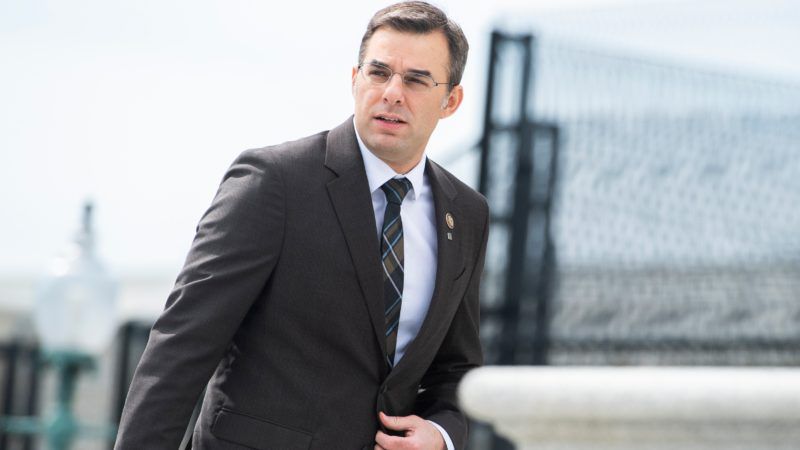Maybe Cops Should Be 'Pulling Back'
Abolishing qualified immunity is a crucial step in holding police accountable for violating our rights.

Attorney General William Barr worries that making it easier to sue cops for abusing their powers "would result certainly in police pulling back." White House press secretary Kayleigh McEnany calls the idea a "nonstarter."
Americans who have watched the horrifying video showing now-former Minneapolis police officer Derek Chauvin kneeling on George Floyd's neck for nearly nine minutes while ignoring the prone, handcuffed man's desperate pleas, past the point where he stopped moving and no longer had a detectable pulse, might reasonably conclude that some "pulling back" by police is exactly what we need. And once Americans understand the legally reinforced culture of impunity that encourages such abuses, they might view the reform peremptorily rejected by McEnany as a good start rather than a nonstarter.
In other contexts, Barr recognizes the importance of litigation in protecting constitutional rights. He has repeatedly warned that COVID-19 control measures can violate the First Amendment when they discriminate against religious activities and has supported churches challenging such regulations.
Those lawsuits rely on 42 U.S.C. 1983, which allows people to sue anyone who, under color of law, violates their constitutional or statutory rights. Beginning in 1967, the Supreme Court has read into that law exceptions for government officials who act in "good faith" or whose conduct does not violate "clearly established" rights.
Such "qualified immunity"—especially under the latter exception, which the Court invented in 1982—has in many cases prevented victims of police abuse from pursuing their claims. In practice, it often means victims' lawsuits will be dismissed unless they can cite precedents with nearly identical facts.
Plaintiffs have found it increasingly difficult to locate such rulings since 2009, when the justices said courts can dismiss their lawsuits without even deciding whether their rights were violated. As Don Willett, a judge on the U.S. Court of Appeals for the 5th Circuit, observes, "important constitutional questions go unanswered precisely because those questions are yet unanswered."
Did Idaho cops violate the Fourth Amendment when they wrecked a woman's home by bombarding it with tear gas grenades after she agreed to let them inside to arrest her former boyfriend? What about the Georgia sheriff's deputy who shot a 10-year-old boy while trying to kill his dog after police chased a suspect into their yard?
We don't know the answers, because appeals courts dismissed those cases without resolving the constitutional questions they posed. Likewise with the Nebraska sheriff's deputy who, while responding to an erroneous "domestic assault" report, lifted the purported victim in a bear hug and threw her to the ground, knocking her unconscious and breaking her collarbone; the Tennessee officer who allegedly sicced a police dog on a burglary suspect who had already surrendered and was sitting on the ground with his hands up; and the California cops who allegedly stole cash and property worth more than $225,000 while executing a search warrant.
As UCLA law professor Joanna Schwartz notes, such decisions "deny what is often the best available relief to plaintiffs who have been grievously wronged by government actors, suggest to government officials that they can violate the law with impunity, and send the troubling message to victims of misconduct that they are not deserving of constitutional protection." Or as Willett puts it, "qualified immunity smacks of unqualified impunity, letting public officials duck consequences for bad behavior—no matter how palpably unreasonable—as long as they were the first to behave badly."
Justices Clarence Thomas, Sonia Sotomayor, and Ruth Bader Ginsburg—who don't agree on much else—also have expressed concern about qualified immunity. Rather than rely on the Supreme Court to reconsider that doctrine, Rep. Justin Amash (L–Mich.) last week introduced a bill that would abolish it, as would a broader package of police reforms that House Democrats unveiled this week.
This should not be a partisan issue. As Amash points out, "Members of Congress have a duty to ensure government officials can be held accountable for violating Americans' rights, and ending qualified immunity is a crucial part of that."
© Copyright 2020 by Creators Syndicate Inc.


Show Comments (136)